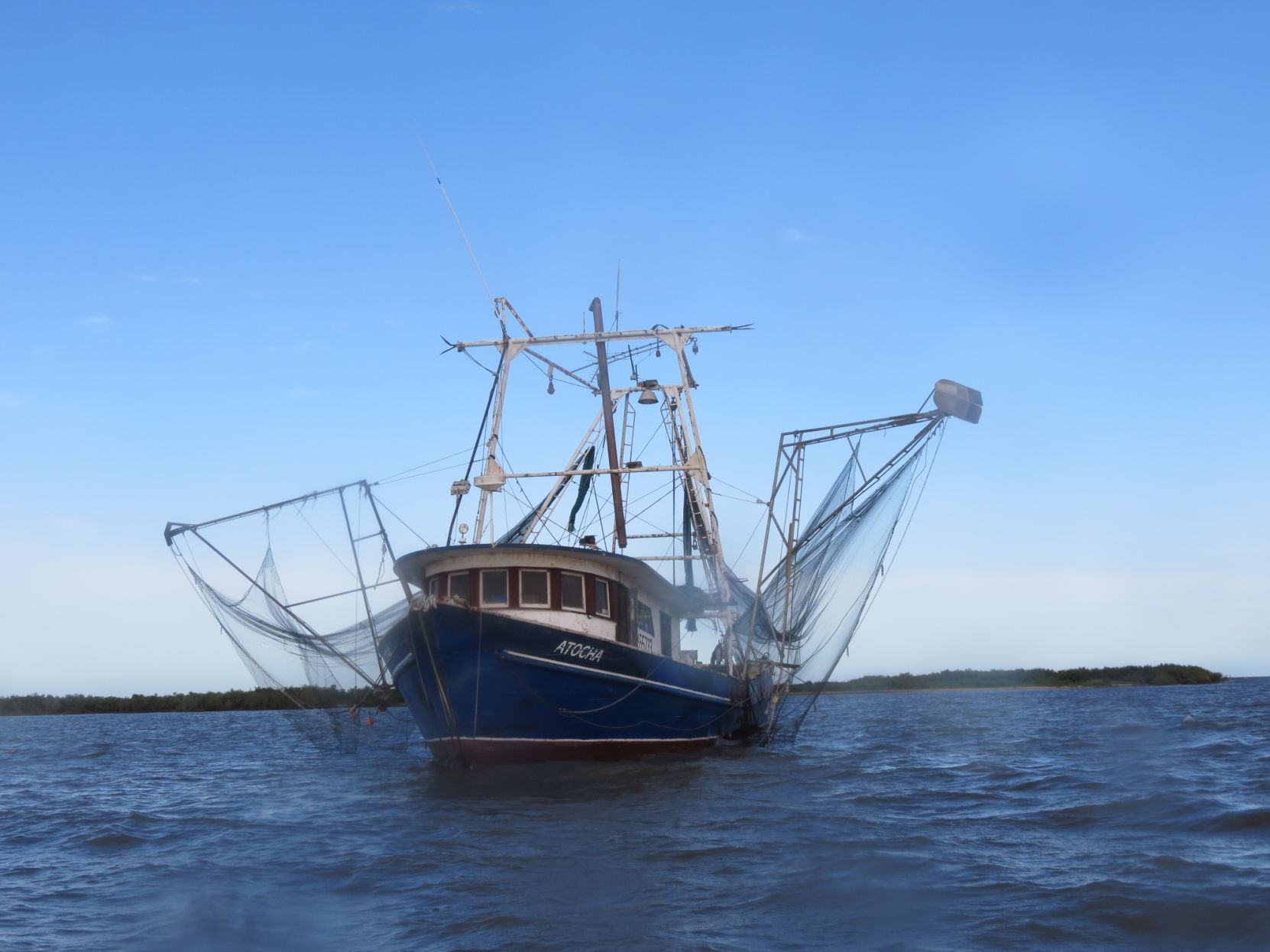
Cajun centenarian brought family together around table
June 2, 2015Unity, diversity seen as key to industry recovery
June 2, 2015At its grand height prior to the 1990s, the Louisiana shrimp industry provided the means for full-time families in bayou communities like Dulac, Chauvin and Golden Meadow to buy or build houses and send children to college. Shrimp was a luxury product available outside the southeast at elevated prices. A crash in prices 15 years ago, brought on by increasing competition from overseas operations, forced domestic shrimp prices down to a point where they were cheaper than hot dogs.
Local economies were changed forever.
Shrimpers began selling their catches directly to consumers, at first on the sides of roads and even in supermarket parking lots, bypassing processors and thus avoiding global market competition. But the time, effort and expense of such attempts were not workable for many.
Today, competition between local processors or the wholesalers they sell to largely places prices out of local control, and subject to market whims.
For more than a decade, tariffs on overseas shrimp whose producing nations were found guilty of violating U.S. trade laws by dumping artificially cheap shrimp into the U.S., have provided some relief for the local industry.
Tariffs are collected on shrimp sold by Thailand, Vietnam, India, Brazil, China and Ecuador. Ecuador was later dropped. Even proponents of the trade actions, however, acknowledge that they are no panacea.
The legal bills for those trade actions, footed by shrimpers and processors, amounted to millions of dollars. But major changes have taken place since they were first won in 2004.
A U.S. trade law – the Byrd Amendment – directed tariffs be paid to the domestic industry, with qualifying processors and fishermen splitting millions of dollars. But the World Trade Organization outlawed the practice, resulting in the law’s congressional repeal. Tariffs now go into the U.S. treasury, and the local industry maintains it has therefore lost an important safety net.
John Williams, director of the Southern Shrimp Alliance, which represents all industry sectors in all warm-water shrimp producing states, and which was involved early on with the fight for tariffs, says some countries are avoiding the duties, thus reducing their effectiveness.
“China has a 113 percent tariff,” Williams said. “They don’t send anything over here. They are sending it to Malaysia, which has no tariffs. They re-box it in Malaysia and send it here, loaded with illegal antibiotics. We are working with the U.S. Food and Drug Administration to stop the circumvention.”
Williams said his organization is working with the FDA to have a countrywide import alert imposed on shrimp from Malaysia.
“I hope we are going to be successful,” he said. “You would think our delegation would get off their behind, all of them, and get that money to fight for this industry.”
Shrimpers are hoping a pending U.S. trade bill – its current House version more favorable and a Senate version less so – could provide some help. Chauvin, Williams and other activists have been pressing for support through social media, letters to the editors of newspapers and other means.
H.R. 1907, the Trade Facilitation and Trade Enforcement Act of 2015, passed through the House Ways & Means Committee in April. It contains language from a bill authored by U.S. Rep. Charles Boustany, R- LA, called the PROTECT Act.
It provides tools ands mandates that would help U.S. Customs and Border Protection to better attack tariff evasion such as has been alleged against China.
“The U.S. Treasury has lost billions of dollars in uncollected duties on unfairly traded imports because of a wide variety of circumvention schemes,” Boustany said. “This harms important job creators like the seafood and agriculture industries in my home state. The PROTECT Act will increase communication between agencies within the federal government and provide them with new, necessary tools to combat the evasion of import duties.”
A Senate version, which contains fewer proactive measures, has cleared committee; the House and Senate must now sort out their differences. Boustany is hopeful his House provisions will survive.
Williams maintains the House bill “gives the federal government, legitimate importers and distributors and trade-affected domestic industries real tools to meaningfully prevent and combat fraud. This legislation is vital to our industry’s future.”
Kimberly Chauvin, of the David Chauvin Seafood Company in Dulac, is among shrimp industry voices who say money that once went to shrimpers and processors due to the now-stripped Byrd Amendment should be used to pay for inspection programs. A Boustany-sculptured plan to have interest accrued on the tariffs go to the affected industries is still a work in progress.
Local shrimp’s place in the global market makes it vulnerable to many issues that can be costly. The current shrimp glut comes after two years or more of price increases in the imported sector due to Early Mortality Syndrome, a disease affecting overseas aquacultured shrimp. Demand last year was a record high, so much so that profitable margins for U.S. shrimp matched the price of scarce aquacultured product.
But EMS is no longer a problem; increased production by Ecuador, among other factors, means a new influx of cheap overseas shrimp and the resulting price structures make selling at a profit difficult for packers and wholesalers of local shrimp to sell and still make money. That proves their vulnerability even more.
While awaiting congressional help, domestic shrimp producers and sellers are trying to score with long-standing talking points about the safety or purity of imported shrimp, hoping to grab the attention of retailers and consumers, with varying results.
Federal officials acknowledge they only inspect a smidgen of shrimp arriving from foreign shores for the presence of veterinary drugs beyond U.S. thresholds and that, in some cases, are banned for use here altogether.
Statistics provided by the FDA show some progress is being made.
The targets of the antibiotic message are consumers, who en masse have not shown a strong willingness to pay higher prices for a domestic product.
Those mindful of the health considerations, as well as environmental and human rights issues surrounding overseas shrimp farming like destruction of mangroves, use of child labor and human trafficking have been given reason to suspect shrimp caught in Louisiana as unfit for their agenda.
Because Louisiana does not regulate how long inshore skimmer boats pull their nets, arguably posing danger to sea turtles, the Monterey Bay Aquarium has put the state’s shrimp on its “red light” list. That has caused sizeable ecology-minded retailers like Whole Foods to eliminate Louisiana shrimp from their stocks.
Meanwhile, the imported product used in packaged and prepared foods with no requirement that it be labeled, continues its role as the undisputed top dog of the global shrimp market, with the U.S. wild-caught product a mere tail.
How effective the food safety arguments will be in protecting local industry interests is therefore a toss-up, although the message has been getting a broader audience.
Earlier this year, Consumer Reports tested 342 samples of frozen shrimp and found harmful bacteria and illegal antibiotic residues in a “small percentage.”
Samples were tested for salmonella, vibrio, staphylococcus aureus, E. coli and listeria, according to the consumer advocacy group’s magazine.
The “small percentage,” while cause for concern, does not in the eyes of many who don’t live on the Gulf Coast make for a crisis.
But some in the local industry, like Andrew Blanchard of Chauvin’s Indian Ridge shrimp company, say it does provide a door for education, and is more easily done than a trade war and its related expenses. He also maintains like others in the industry that a price war is out of the question. Domestic producers will lose just about every time.
“You are not going to stop the importation of shrimp into this country,” Blanchard said. “That’s like the federal government saying we are going to stop the importation of oil. That’s not going to happen. They are going to continue on importing. The government says it’s good for our economy and it balances their trade agreements. The only way to fix it is education of the consumer. The consumer needs to realize that the wild-caught product is better, that it is better tasting and better for you.”











